Books that revolutionized the understanding of the physical world
On the Origin of Species (By Charles Darwin)

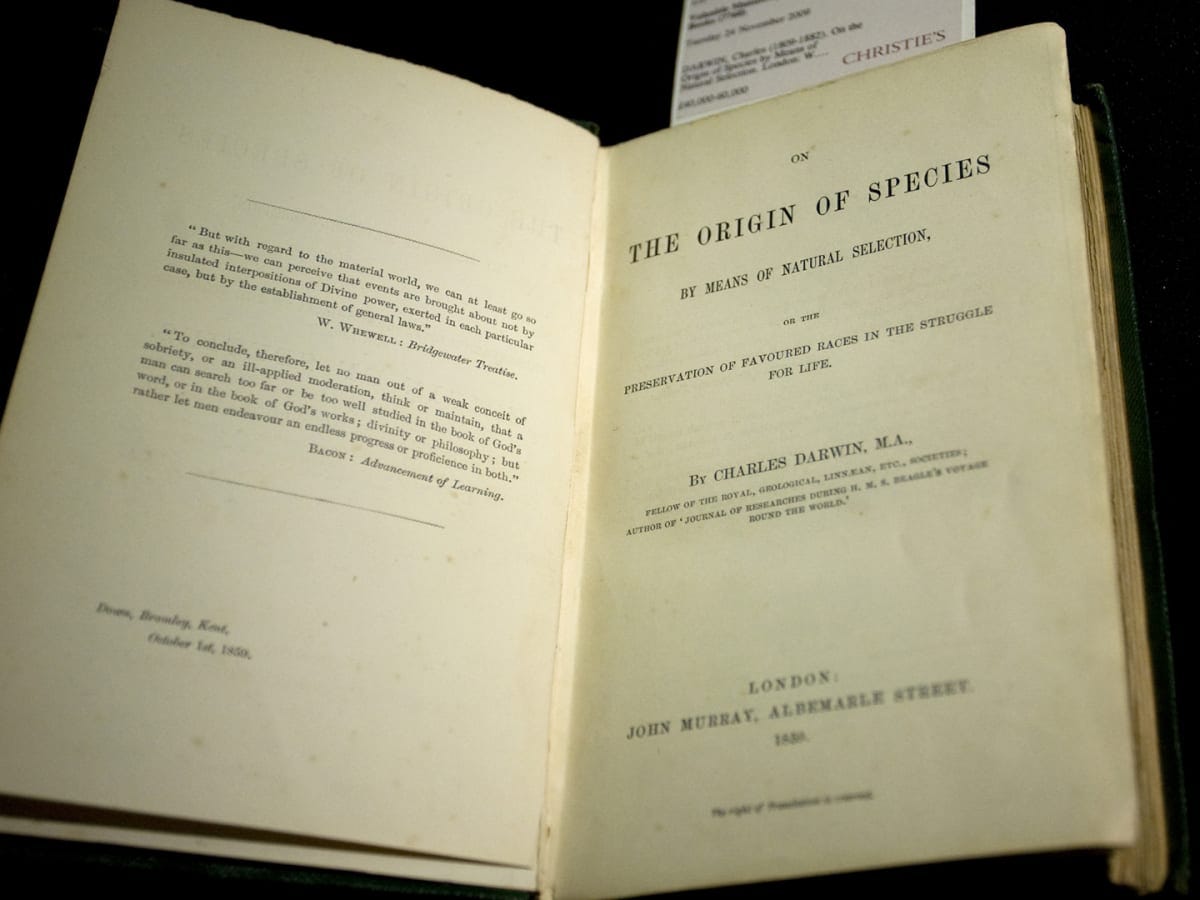
The book explains about the theory of evolution by natural selection, and how species evolve and are in constant battle with nature. This was somewhat a direct contradiction to religious injunctions at that time and one of the pioneer books for scientific enlightenment. This book could be considered the publication that kick-started the era of evolutionary biology and made Darwin the Father of Modern evolution. Darwin mentions in the introduction of the book, on page 5
“As many more individuals of each species are born than can possibly survive; and as, consequently, there is a frequently recurring struggle for existence, it follows that any being, if it vary however slightly in any manner profitable to itself, under the complex and sometimes varying conditions of life, will have a better chance of surviving, and thus be naturally selected. From the strong principle of inheritance, any selected variety will tend to propagate its new and modified form.”
Philosophiæ Naturalis Principia Mathematica (By Sir Issac Newton)
Newton proves that planets go around the sun, and the mathematical calculations involved the gravitational force between two massive objects. He also talks about the inverse square law (i.e the force is inversely proportional to the square of the distance between the objects.) This book could be considered the foundation of classical mechanics. Classical mechanics is the pillar ko modern physics and quantum mechanics which primarily deals with the dynamics of macro physical phenomena. In the preface of the Principia Mathematica, Newton mentions
“I wish we could derive the rest of the phenomena of nature by the same kind of reasoning from mechanical principles; for I am induced by many reasons to suspect that they may all depend upon certain forces by which the particles of bodies, by some causes hitherto unknown, are either mutually impelled towards each other, and cohere in regular figures, or are repelled and recede from each other; which forces being unknown, philosophers have hitherto attempted the search of nature in vain; but I hope the principles here laid down will afford some light either to that or some truer method of philosophy.”
A Brief History of Time (By Stephen Hawking)
This book encompasses Hawking’s way of explanation about the most complex concepts and ideas in physics like space, time, black holes, and gravity in the simplest of ways that anyone could grasp what it’s trying to say. The late author is one of the most prolific cosmologists and thinkers of all time. The book was authored when professor Hawking was suffering from acute motor neuron disease which makes it even more special inspiring generations of scientists and thinkers. This was one of the few first books that ignited my fascination for science. Hawking, very beautifully explains one of the very important criteria for something to be called scientific in the first chapter of the book,
“Any physical theory is always provisional, in the sense that it is only a hypothesis: you can never prove it. No matter how many times the results of experiments agree with some theory, you can never be sure that the next time the result will not contradict the theory. On the other hand, you can disprove a theory by finding even a single observation that disagrees with the predictions of the theory. As philosopher of science Karl Popper has emphasized, a good theory is characterized by the fact that it makes a number of predictions that could in principle be disproved or falsified by observation. Each time new experiments are observed to agree with the predictions the theory survives, and our confidence in it is increased; but if ever a new observation is found to disagree, we have to abandon or modify the theory.”
On the Revolutions of Heavenly Spheres (By Nicolaus Copernicus)
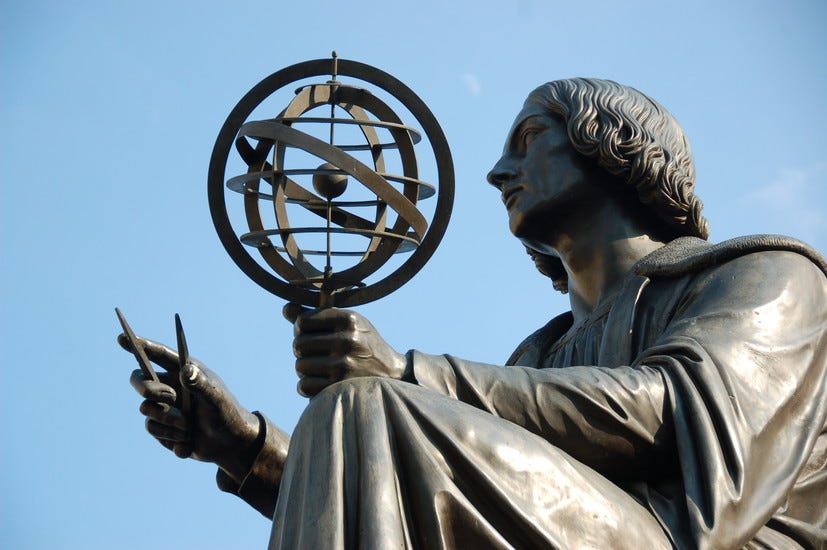
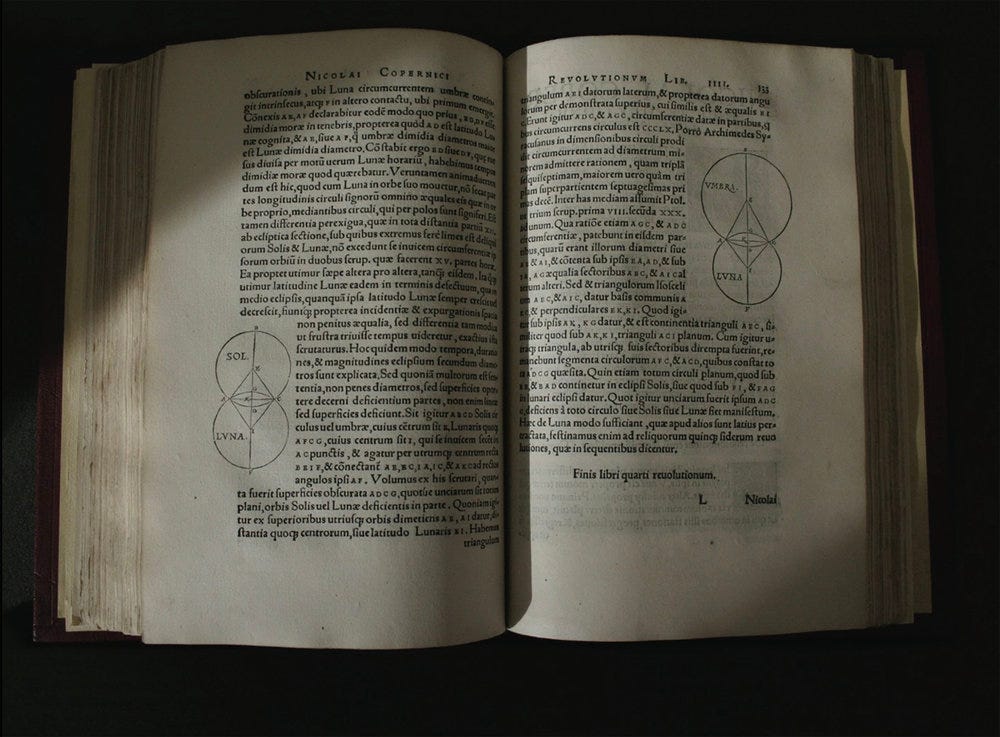
Copernicus, who’s considered one of the greatest astronomers of the 16th century, discusses the idea that the Sun is the center of our solar system, which was contrary to Aristotle’s theory of the Earth being the center of our solar system. After many years of observations, he came up with a heliocentric theory. His book On the Revolutions of Heavenly Spheres is considered to be one of the most important books in the history of science that initiated the modern scientific revolution and modern astronomy. In the preface of the book Copernicus mentions,
“For I am not so enamored of my own opinions that I disregard what others may think of them. I am aware that a philosopher’s ideas are not subject to the judgment of ordinary persons, because it is his endeavor to seek the truth in all things, to the extent permitted to human reason by God. Yet I hold that completely erroneous views should be shunned. Those who know that the consensus of many centuries has sanctioned the conception that the earth remains at rest in the middle of the heaven as its center would, I reflected, regard it as an insane pronouncement if I made the opposite assertion that the earth moves.”
A Dynamical Theory of the Electromagnetic Field (By James Clerk Maxwell)
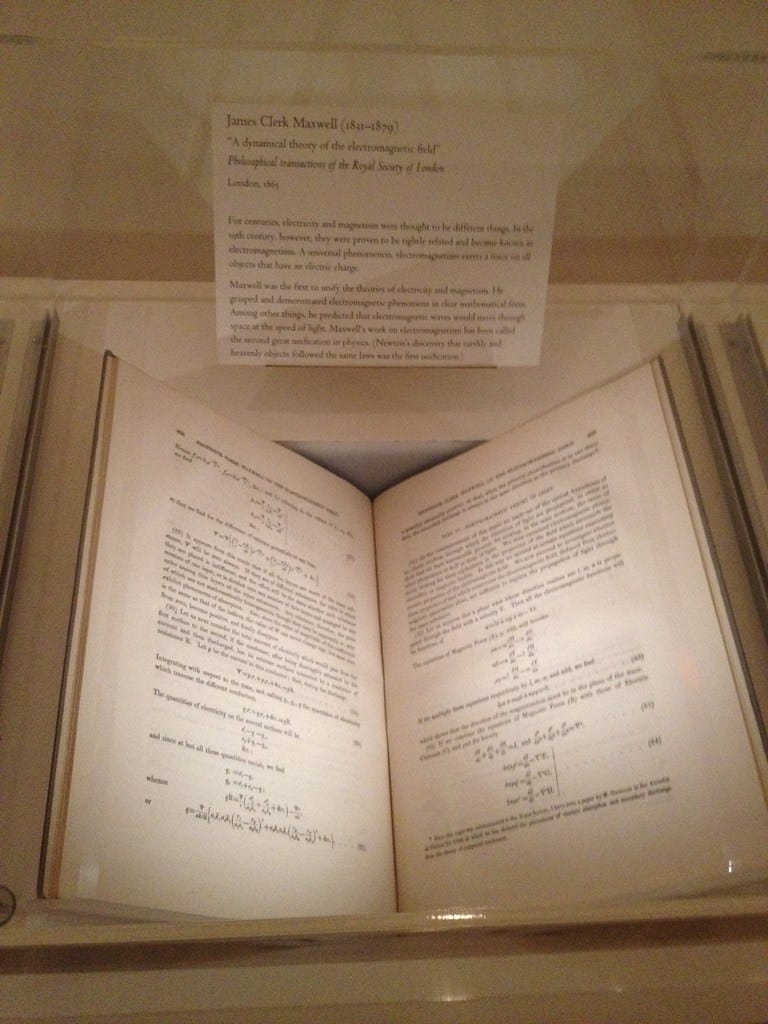
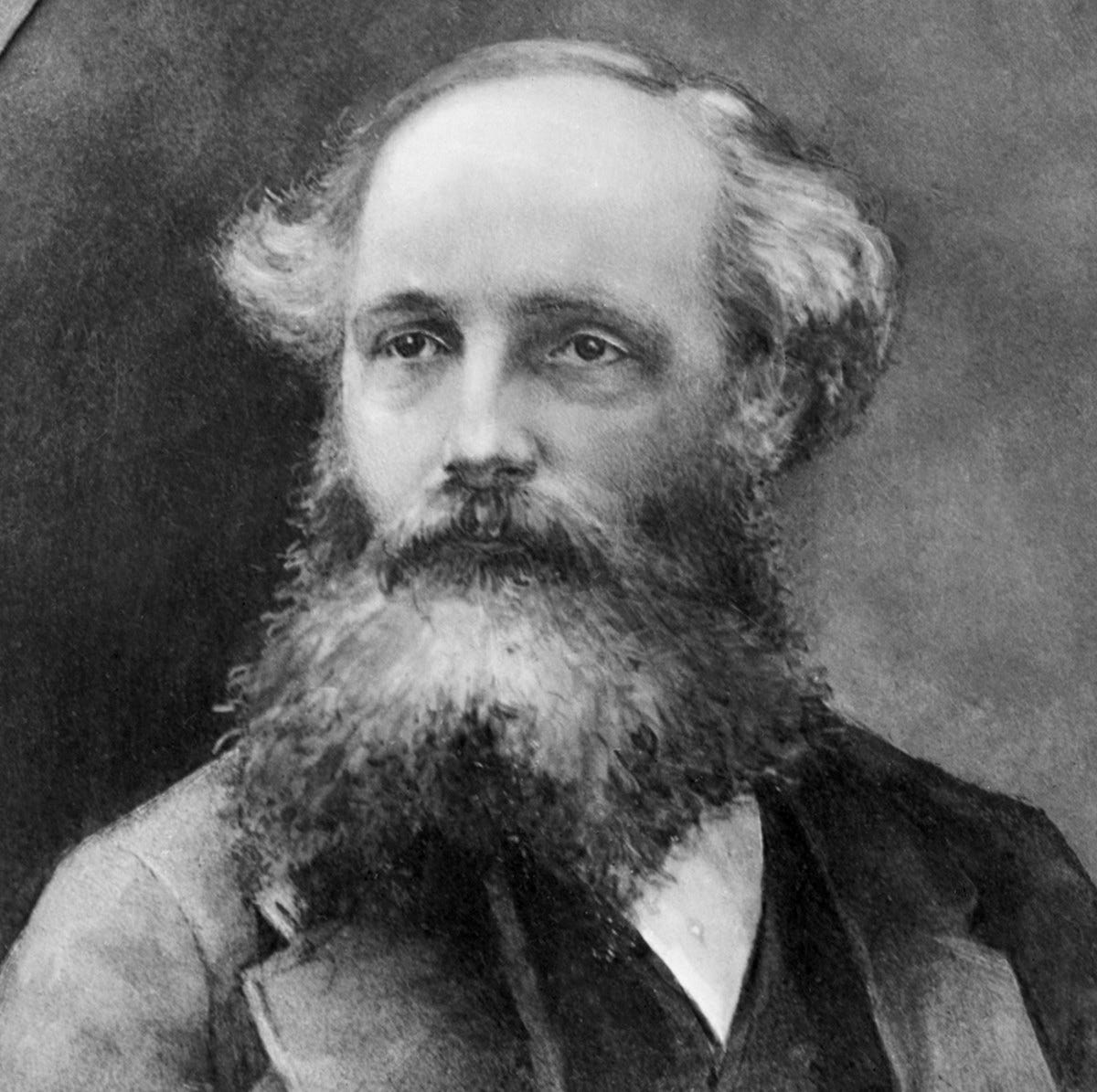
In this book, Maxwell establishes the fact that light is an electromagnetic wave. For the first time, he explains the idea that oscillating charge will produce changing electric field, which is responsible for the production of changing magnetic field. They both continue to be responsible for each other’s existence and are thus called the electromagnetic field. James Maxwell is considered to be one of the greatest physicists of all time who revolutionized the course of physics and brought a scientific revolution.
Contributed by Rishab Karki and curated by the author.
Thank you so much for reading. If you liked this story don’t forget to press that clap icon. If you like my works and want to support me then you can become a medium member by using this link or buy me a coffee ☕️. Keep following for more such stories.